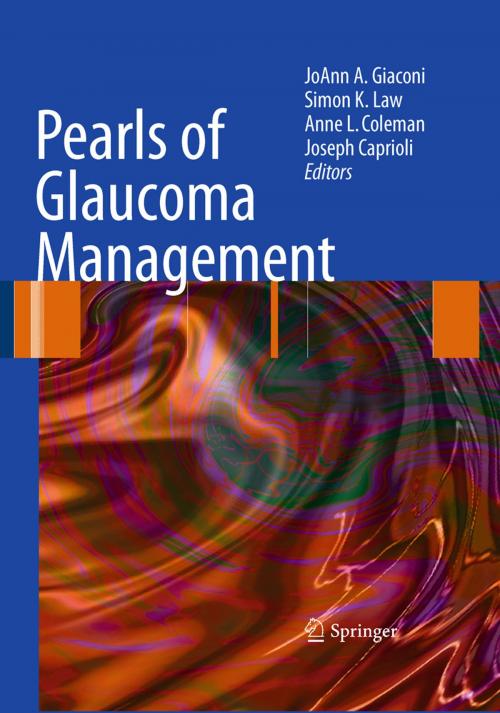Pearls of Glaucoma Management
Nonfiction, Health & Well Being, Medical, Specialties, Ophthalmology, Science & Nature, Technology, Material Science| Author: | ISBN: | 9783540682400 | |
| Publisher: | Springer Berlin Heidelberg | Publication: | March 2, 2010 |
| Imprint: | Springer | Language: | English |
| Author: | |
| ISBN: | 9783540682400 |
| Publisher: | Springer Berlin Heidelberg |
| Publication: | March 2, 2010 |
| Imprint: | Springer |
| Language: | English |
If you have ever uttered the commonly expressed lament, “Glaucoma is so confusing!” then this text is for you. You will no longer be bewildered. Why practitioners may be confused about how to be of help to patients with glaucoma – in its many incarnations and reincarnations – is easily understood. The issue seems to be overwhelming when one considers that the already massive popu- tion of those with glaucoma is increasing rapidly as the world’s population increases and ages. During the past 50 years the fundamental defnition of glaucoma has changed almost 180°, and the indications for treatment have become more variable and c- troversial, some advising early therapy and others strongly cautioning against such an approach: Various diagnostic tests have come and gone and are interpreted in such different ways that there seems to be no consensus; surgical techniques come in and out of fashion in perplexing ways. There seems to be a constantly shifting, sandy foundation on which are built unsteady schools of ever-varying advice. Why prac- tioners, patients, and the public are often bewildered is understandable.
If you have ever uttered the commonly expressed lament, “Glaucoma is so confusing!” then this text is for you. You will no longer be bewildered. Why practitioners may be confused about how to be of help to patients with glaucoma – in its many incarnations and reincarnations – is easily understood. The issue seems to be overwhelming when one considers that the already massive popu- tion of those with glaucoma is increasing rapidly as the world’s population increases and ages. During the past 50 years the fundamental defnition of glaucoma has changed almost 180°, and the indications for treatment have become more variable and c- troversial, some advising early therapy and others strongly cautioning against such an approach: Various diagnostic tests have come and gone and are interpreted in such different ways that there seems to be no consensus; surgical techniques come in and out of fashion in perplexing ways. There seems to be a constantly shifting, sandy foundation on which are built unsteady schools of ever-varying advice. Why prac- tioners, patients, and the public are often bewildered is understandable.















